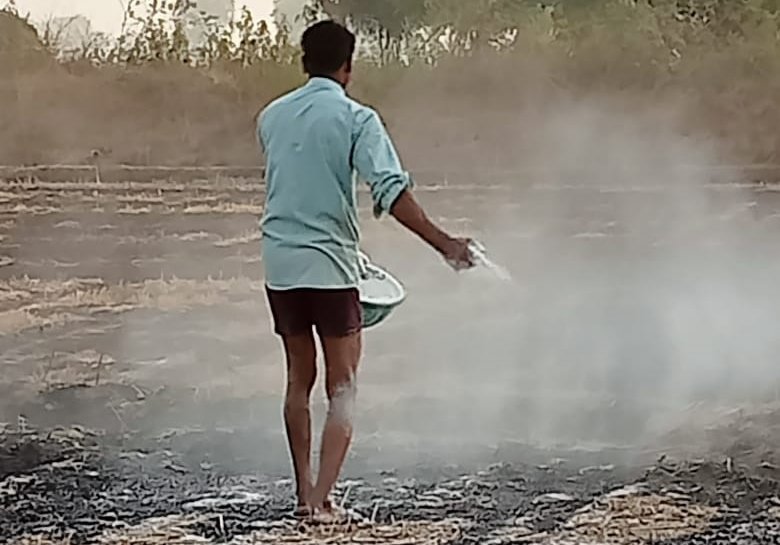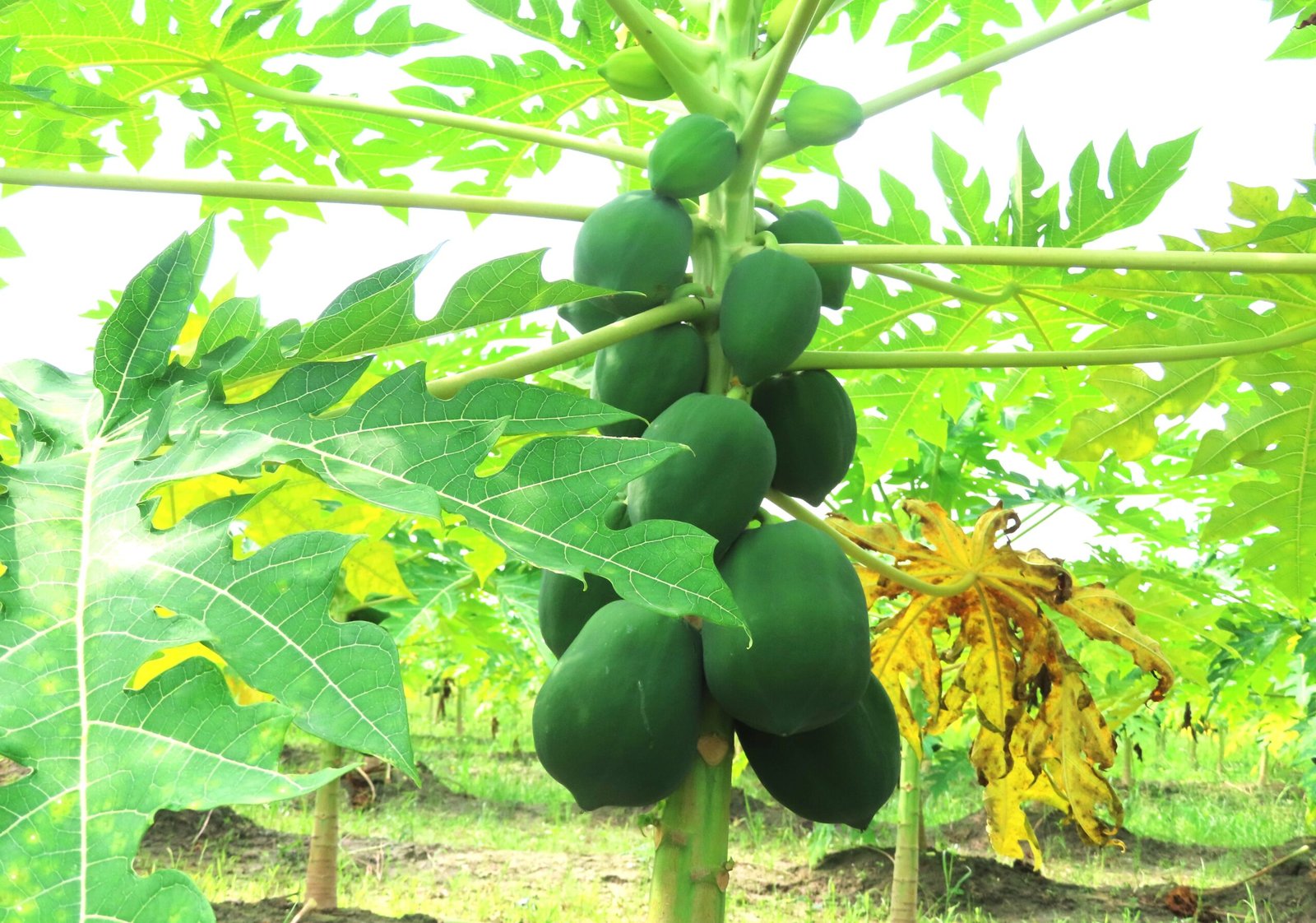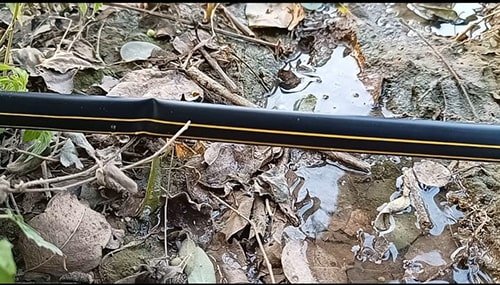Now a days people are much aware about organic produce or chemical less agriculture products in every part of India so it resulted high demand of vermicompost in various sectors. Not only in rural India but also in suburban areas business of vermicomposting become a sustainable part of lively hood. it creates a best option for source of income.
This was the time of October,2020 one of the framer Mr. Manoj Kumar Bhati a habitant of village Kherli Hafizpur was thinking for Chemical free farming but the main hurdle to start the activity was affordable and easily available Bio- Compost in the local area.
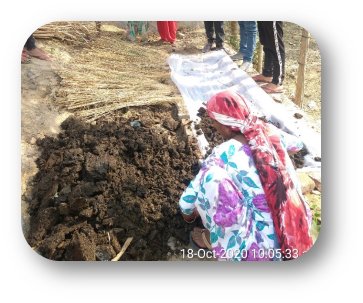
Definitely for this vemicompost was the only best suitable option. But being a new person getting start a new setup or related activity was a big challenge, luckily Mr. Manoj Bhati was selected for Front line Demonstration program (FLD) under Water Resource Development Program in 2020.
Start of the Activity
In year 2020 Mr. Manoj Bhati was selected as a FLD and he has been supported to establish a zero budget vermicompost unit in his backyard this was a beginning of big milestone in his life he has started doing vermicompost with one small vermi-bed with size of 3X9 feet. With the technical support of Organization for Social Impact & Assessment (OSIA) arranged earthworm to Mr. Manoj Kumar. Very soon he got the solution for all his questions. The earthworm has started growing and they have started converting cow dung into vermi compost. Day by day due to hard work of Mr. Manoj Kumar and regular monitoring of NAF resource person this small activity carried out in to big scenario with the help of his own produced earthworms more than five vermi-bed size of 4×30 feet have been made with in the sixth moths of commencement.
now being a FLD farmer Mr. Manoj kumar created new mile stone, many new farmers are visiting to his fields to see the success.


Now he is applying own produced vermicompost in his field and getting chemical free yields. Apart from this he showing the path to many farmers and person who are interested doing his own kitchen garden in nearby area too.
How to use Vermicompost?
You can use your compost right away, or store it and use it later, such as during the planting season. As a soil additive, the compost can be added straight into your potting soil or garden soil to aid in the availability of nutrients to plants. Alternatively, you can use the compost as a top treatment for both indoor and outdoor plants. You may either use your vermicompost right away or keep it for up to an year to use during the gardening season. Pure vermicompost should not be used in pots or containers. Vermicompost and potting soil should be mixed at a 1:4 ratio. Vermicompost can also be used to make “compost tea.” Simply fill your water bucket or rain barrel with 1-2″ of compost. Allow a day for the compost and water to “steep,” mixing occasionally. After that, water your plants as usual. The resulting liquid fertilizer “tea” can be sprayed near plant roots. This aids in availability of nutrients already present in the soil to plants.
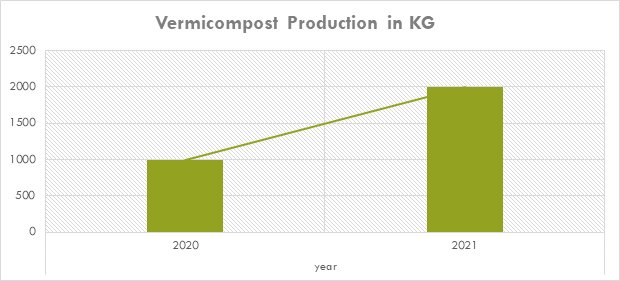
Use like compost
When mulching grow beds or preparing new beds, dig it lightly into the earth, or apply a light top dressing around mature plants, shrubs, and trees. Because vermicompost goes three times as far as typical (aerobic) compost, use one-third the amount. 3 tablespoons of vermicompost per plant is usually sufficient. Then, water each plant thoroughly, making sure to soak in the worm compost you just applied, which will aid in the nutrient absorption.
Use for germinating seeds
A growth medium for seedlings made of 50/50 castings and potting soil gives plants a great start in life.
Use on transplants
Spray roots with a diluted “worm tea” solution to help reduce transplant shock, especially bare-root transplants.
Store in a dark, cool place
Keep the castings in a breathable container so they don’t dry out. The active microorganisms can last up to a year.


